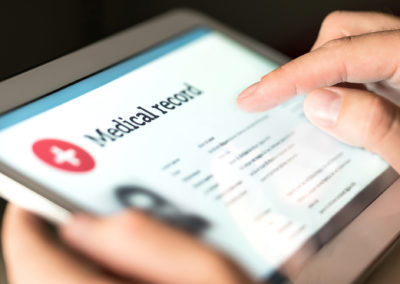What will be your ‘new normal’? How will you adapt to ‘business as unusual’? Read on for some hints and tips from the experts at Imperial to help you make your business a success post lockdown.
Workplace 2020 and beyond
During lockdown, plenty of organisations have demonstrated that remote working works for large numbers of their staff. Obviously, one benefit has been less congestion (cars and commuters) and cleaner air. But what are the challenges of a workforce working from home? And, what will the ‘new normal’ workplace look like?
Whatever your workplace or however you are planning for the future, our experts can offer a range of insights as well as working with you to shape and design your spaces, such as with the user-centric Interaction Foundry from the Dyson School of Design Engineering.
Embrace the change
How can businesses adapt to the new normal without access to facilities, a full workforce or face to face meetings – and with consumers shifting spending even further online? Read more from our experts below.
New technologies emerge
Mobiles and AI are playing an ever increasing part in everyday lives – and never more-so than during lockdown.
- AI call-centre Yokeru contacts shielding residents regularly to ask how they are coping with self-isolation. Responses are provided to the Council so those in need can be easily identified.The AI system costs around a fifth of traditional call centres to run, it would have taken the Council 32 working days, for every day of calls made by Yokeru, to reach the same number of shielding households.
- Machine learning could help smartphones charge faster, increasing the time between charges for electric vehicles, and increasing the power of hydrogen fuel cells running data centres. It allows researchers to explore possible designs for the microstructure of fuel cells and lithium-ion batteries, before running 3D simulations that help researchers make changes to improve performance.
- Imperial researchers will look for potential new treatments for COVID-19 using the computing power of people’s smartphones.Working with Vodafone Foundation, the ‘Corona-AI’ project will use the free DreamLab app, which crunches calculations using a smartphone’s computing power while its user sleeps. The app has already helped find potential new cancer drugs and is now aiming to help in the fight against the coronavirus pandemic.
- Improving workplace wellbeing and mental health through Kaktus AI’s innovative wellbeing application could be crucial to keeping in touch with the wellness of your workforce as our day-to-day involves far fewer in-person interactions. And even as we return to the workplace, the system could be a key factor in understanding and intervening for triggers for deteriorating wellness of your employees.
- A revolution in Augmented Reality and Virtual Reality headsets could herald the saviour of the live music and events industry, thanks to reseach underpinned by acoustic design technology and performance through our Dyson School of Design Engineering, in partnership with the Royal College of Music.
Virtual networking
Here are some ideas for new networking habits we should develop to enable us to continue contributing to each other’s work in organic and spontaneous ways, which will remain valuable even when things return to normal.
The return of the expert
Experts like Imperial College London’s Neil Ferguson, and Peter Piot from the London School of Hygiene & Tropical Medicine are now central advisors to government and the profiles of experts are the material of front-page stories. With the arrival of a global pandemic, experts are back with a vengeance!
Leading during a crisis
Our legacies are determined by the sum of the decisions we make. Some of our decisions are more important than others. The decisions we make today, tomorrow, and in the coming few weeks will be heavily overweighted in how we are remembered, to ourselves, by others, and by history.
Find out how Imperial can help you with your specific needs be they immediate or a longer term goal.
Coronavirus and consumer behaviour
Lockdown saw searches for holiday destinations plummet – as did digital ad revenue, and consumers were buying board games, yeast and home office furniture. After these short-term spikes, dips, and peculiarities, what will be the long-term effects of the coronavirus (COVID-19) pandemic on consumer behaviour?
Connect with your customers
Consumers are changing the way they are spending – and what they want from brands has shifted. Businesses must rise to the challenge of communicating with their customers in a way that reflects the times in which we live, and adapt this strategy as the crisis plays out.
Importance of marketing
One of the first questions business leaders tend to ask themselves during the early stages of an economic slump is where to make cuts. Inevitably, though misguidedly, marketing is often first on the chopping block. Here’s three ways to optimise your spending during the pandemic and flourish in a post-COVID-19 world.
Save your startup
By adapting the revolutionary ‘lean startup methodology’ adopted by many entrepreneurs, you can still succeed despite the crisis. Finding customers virtually, spending downtime on design – and considering a different or digital path all considered. Read how.
Breeding social unicorns
In these challenging times the world needs a new type of unicorn: social unicorns. These will be businesses that do not just maximise their narrow financial valuations but maximise broad societal resilience. The entrepreneurs who start them will not be celebrated for reaching a one-billion-dollar valuation but for succeeding in improving one billion lives.
Healthcare on a blockchain
A single source of reliable information accessed by design makers and suppliers would be extremely helpful when responding to an international healthcare crisis. Storing and sharing patient information on blockchain ledgers can provide more personalised healthcare. Plus, analysing large volumes of patient data on a blockchain, using machine learning techniques, could reveal trends not seen before.
Who to contact:

Jamie Pombeiro de Sousa
Engagement Manager
For Materials, Manufacturing, Mechanical Engineering, Computing, Cyber Security, Data Science and AI






